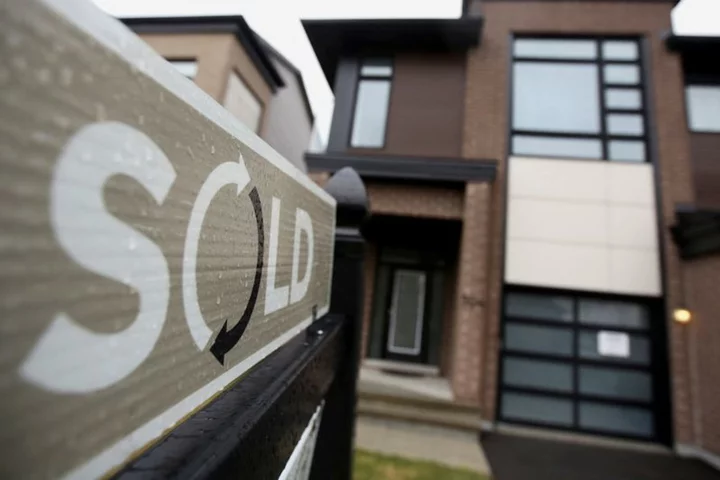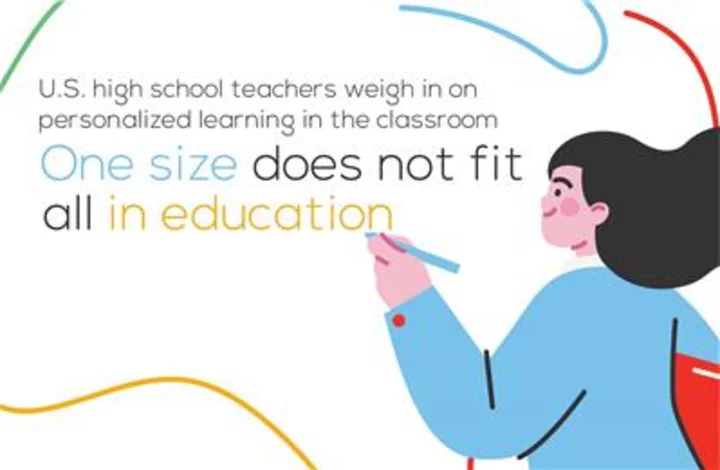By Nivedita Balu
TORONTO The Bank of Canada's warning that borrowing costs are likely to stay higher-for-longer has prompted anxious mortgage owners to turn to fixed-rate loans in the hope they will bring more stability to their finances after a choppy few years.
With the Canadian economy showing signs of a slowdown, money markets are pricing in the first interest rate cuts since March 2020 as soon as April, which would bring down mortgage costs.
Still, more home buyers took out fixed-rate mortgages in September compared with a year ago, eschewing variable rate mortgages where the interest rate varies based on current market rates. Fixed-rate loans also offer among the lowest rates available now.
The trend is being driven by homeowners preferring stability in monthly expenses rather than betting on lower rates ahead that might lower payments, after being stung by a prediction by the Bank of Canada in the early days of the COVID-19 pandemic that backfired on them.
"If you've got a mortgage or if you're considering making a major purchase... you can be confident rates will be low for a long time," Bank of Canada Governor Tiff Macklem said in July 2020 after slashing interest rates to a record low, helping prompt a housing boom that led to Canadians racking up mortgage debt over the subsequent two years.
Since then, the central bank has raised the key interest rate to a 22-year high of 5% in July. Now with more than C$900 billion ($656.07 billion), or 60%, of residential mortgages at Canada's big banks likely to be renewed in the next three years, homeowners are having to choose between fixed or variable rate loans.
"It is tricky," said Sophie Tremblay, an aviation professional from Montreal. "You don't know what is the best decision to make and right now the banks are fully pushing us to go into a fixed and lock that instead."
She said she is already thinking about her mortgage renewal even though it is three years away, given her current payments barely cover interest on her five-year variable mortgage.
Roughly half of new mortgages in early 2022 were variable-rate ones, but that number dropped to just 6% in August 2023, according Canada's housing agency. The share of fixed rate loans among five-year and three-year mortgages rose to 68% in August compared with 32% a year ago.
In the first three weeks of November, 79% of mortgage seekers in Canada opted for a fixed mortgage, said Hanif Bayat, CEO of financial data firm Wowa Leads.
Borrowers have turned cautious after recent rate predictions turned out wrong, but loans based on variable rates may still be popular in the next couple of years as markets gear up for rate cuts in the next two years, he said.
NEW ERA
National Bank analysts wrote in a research note this month that acceptance of rates staying 'higher-for-longer' might lead some to lock in rates and avoid as much uncertainty as possible.
"BoC officials are helping to ingrain this, telling Canadians to brace for an era of higher borrowing costs," the note added.
More recently, BoC Deputy Governor Carolyn Rogers this month said Canadians should plan for higher rates, warning rates might not return to low levels seen in the pre-pandemic era as geopolitical risks such as the conflict in the Middle East have added more uncertainty to the global economy.
Asked about families making decisions based on Macklem's 2020 comments that rates would stay low for a long time, the BoC pointed to Rogers' comments in November that decisions at the time were made to "support an economy that had effectively been shutdown" and that "two years was a long time for interest rates to be at the level they were."
Banks could be looking to lock in customers at a fixed rate as bond yields retreat from their peak, ultimately boosting profitability for the big banks as rates continue to normalize in the coming years, said Ryan Sims, a mortgage agent at TMG The Mortgage Group Inc.
Most homeowners in Canada renew their mortgages every three to five years.
William Coyle was among a large number of Canadians who bought a house last year, selling his smaller house in the Niagara area for one in Huntsville, a picturesque town north of Toronto.
But Coyle's mortgage payments have since shot up 40% and he said he is sometimes forced to dip into his savings.
"This level of uncertainty, where we're going and the Bank of Canada's inability to provide accurate information is scaring a lot of buyers," he said.
($1 = 1.3718 Canadian dollars)
(Reporting by Nivedita Balu in Toronto; Editing by Denny Thomas and Deepa Babington)









